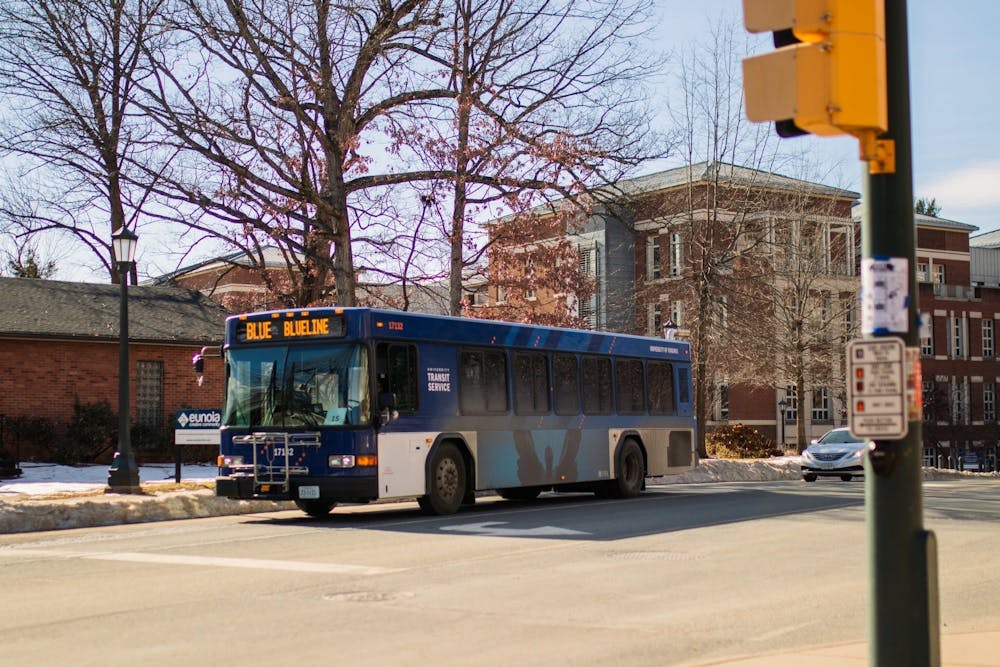University Transit Service announced Tuesday that it has purchased four new battery-powered electric buses to add to its existing fleet of 40 buses as part of an effort to make the service more environmentally sustainable. As a typical bus runs for about 12 to 15 years, this purchase sets into motion the long-term plan towards the University’s sustainability goals.
Per its Sustainability Plan, the University administration pledged to achieve the goal of carbon neutrality as an institution by the year 2030 and make all operations fossil fuel free by 2050. These zero emission vehicles, purchased from California-based electric vehicle manufacturer Proterra, are one step in the action plans to reach both those climate targets.
The buses in the current UTS fleet run on an average of 10,000 gallons of diesel fuel annually, the combustion of which emits around 100 metric tons of carbon dioxide per year. The four new buses together will mitigate the carbon emissions equivalent to the annual emissions of 50 typical households.
According to the U.S. Energy Information Administration, the burning of diesel fuel in the U.S. transportation industry emitted an estimated 432 million metric tons of carbon dioxide — 26 percent of emissions of the sector’s total emissions and 9 percent of total energy-related emissions. Carbon dioxide — emitted from the combustion of fossil fuels such as diesel — is one of several greenhouse gases responsible for warming the surface of the Earth and causing anthropogenic climate change.
The upfront cost of the battery electric buses is higher than those of diesel buses and operational costs are lower. The total ownership cost of the electric buses is around $175,000 higher over the course of 12 years than a diesel vehicle.
The company claims that their electric transit buses, which are made in the United States, can run up to 329 miles on a single charge of the battery. Charging the buses will require installing three electric charging stations at the headquarters of the University Department of Parking and Transportation, which houses UTS. One bus can take up to four hours to fully charge.
The department says operational adjustments will be needed to factor in longer charging times. It began looking into electrified buses in the fall of 2020. Replacing the entire fleet of the UTS would take 12-15 years, according to the Department website.
The UTS system completes more than 2.5 million trips each year, totaling over 70,000 hours of bus service.







